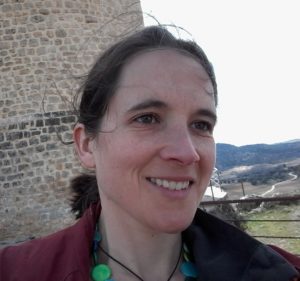 The world may be getting smaller, but it’s not getting simpler. In the lead up to the Association for Medical Education in Europe (AMEE) annual conference 2016, we are working to prepare sessions fit for an international audience and our globalised world.
The world may be getting smaller, but it’s not getting simpler. In the lead up to the Association for Medical Education in Europe (AMEE) annual conference 2016, we are working to prepare sessions fit for an international audience and our globalised world.
A symposium I was part of last year at AMEE on “Social accountability: medical students as leaders for sustainable healthcare” addressed a new and challenging topic from both theoretical and practical perspectives. Yet there was one major aspect of that symposium that we wish we’d done better: creating an environment for active participation, group work, and networking.
This year I’m part of a team running a symposium titled “Build your own: an environmentally sustainable curriculum.” We want to stimulate the participation and learning not only of participants physically present in the room, but also of participants who join us via videoconferencing. While we regularly engage students or colleagues in a classroom, we have less experience with and face more of a challenge connecting across the internet.
There are at least two good reasons why we think it’s important to enable colleagues not physically present at AMEE to join our session. Firstly, many are not able to attend AMEE in person due to time, finances, or other practical barriers. As highlighted by the Tyndall Centre, videoconferencing not only saves travel costs; it enables the participation of those who have caring responsibilities, difficulties with mobility, or for whom travel is difficult for other reasons. Breaking down such inequalities in participation broadens the pool of ideas, which is particularly important when we are discussing a relatively young area of medical education and one which requires innovative responses.
Secondly, videoconferencing will be an increasingly important mode of communication in future, sustainable conferencing. In her book Coming Climate Crisis?: Consider the Past, Beware the Big Fix, Claire Parkinson calculates that to share the planet’s resources fairly and to keep carbon emissions below safe levels, each individual’s carbon allowance would permit them 35 100 kilometres of air travel per year (approximately one return trip from New York to London)—and this is only if they did not emit a speck of carbon with any other activities.
Our team of symposium presenters will collectively have a large travel footprint to get to Barcelona (despite travelling overland where possible), and we want to maximise the value of this large expenditure. It is not only a case of reducing the ecological footprint of one meeting, but laying the foundations for all the future meetings and global discussion to come too.
We want to encourage debate and collaboration to develop sustainable solutions to the climate conundrum and to see how videoconferencing can be a viable way to do this. For us, the symposium is not only an opportunity to talk about sustainable healthcare education; it’s an opportunity to try it out. How effective can mass participation be from multiple locations around the world?
Building relationships is the real challenge for online group communication. Important cues that normally enable us to connect with others are more difficult to pick up during videoconferencing. We believe that good facilitation and including smaller group work will go some way to addressing this challenge, and we hope to learn more over the coming months of preparation and at the symposium.
We want to find a platform that is reliable, allows good vision and hearing, and the opportunity to pose questions and comments either in writing or verbally. We’ve looked into Google hangouts, Adobe Connect, Skype, and real time shared document editors. We haven’t found one tool that provides all that we’re looking for. Our conclusion is that we’ll need to use a variety of tools, and have plenty of facilitators at the symposium ready to manage any problems arising.
Air travel and other rapid means of international travel have enabled us to realise the benefits of global collaboration, and now environmental limits require us to think more carefully about when and how we travel. Health services similarly are now having to measure and manage their travel footprints, and teleconferencing will play an ever larger part. So let’s take every opportunity to learn about and practise the approaches that we need for a low carbon future.
Sarah Walpole is a medical registrar, currently working at the Sustainable Healthcare Education network and Freedom from Torture.
Competing interests: Sarah was the Green Party parliamentary candidate for Hull East in the 2015 elections.
